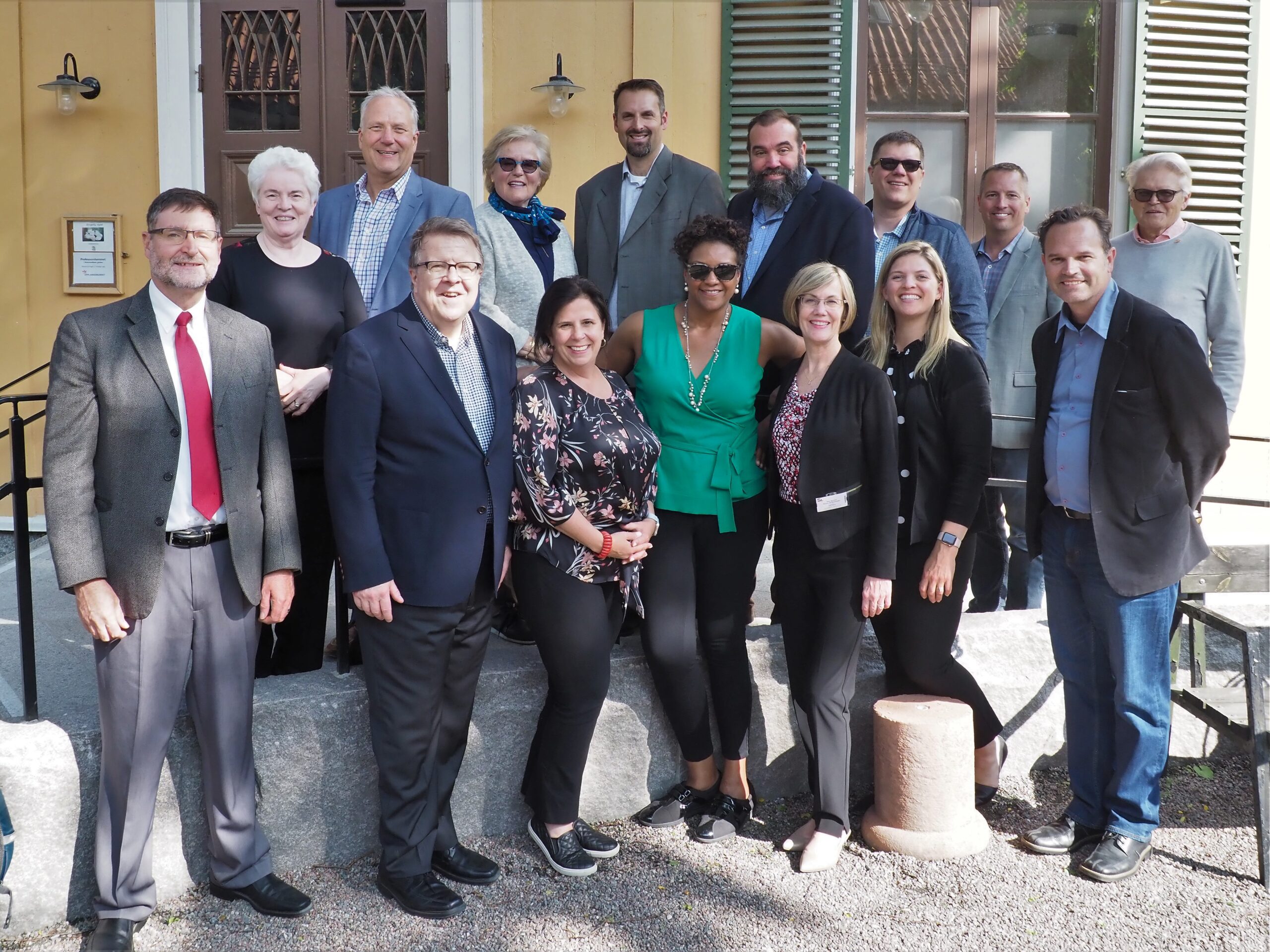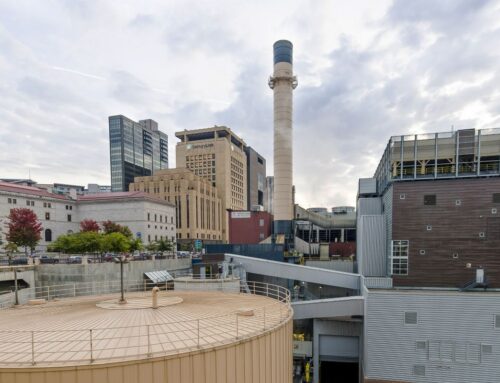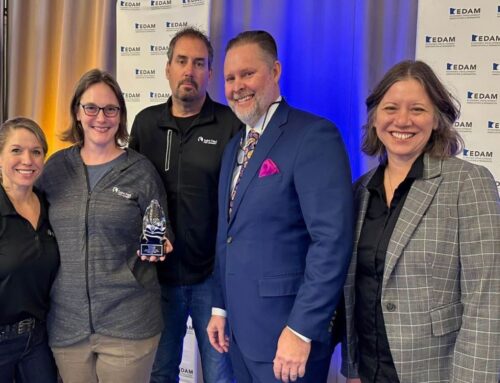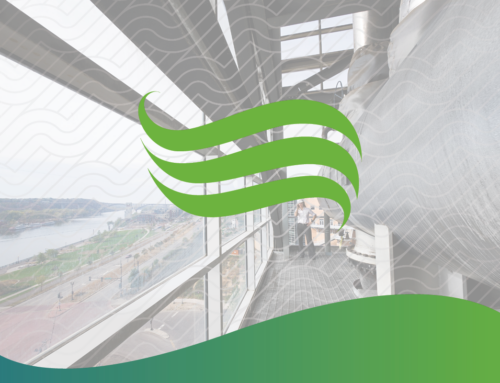
Circular Economy Principles – Lessons From Sweden
July 11, 2019 by Ever-Green Energy
A circular economy is an economic system that prioritizes eliminating waste and getting the most out of resources, as opposed to a traditional linear economy, in which resources are used once and disposed. Ever-Green Energy President and CEO Ken Smith recently returned from a Minnesota delegation to Sweden focused on circular economy principles, and I sat down with him to discuss his experience.
The interview has been edited for clarity and length.
What was the purpose of the trip?
The purpose of the trip was to learn about how Sweden is utilizing circular economy principles from a country level to a community level. We wanted to understand what kind of policies are in place and the underlying culture in the country to further the use of circular economy principles in Minnesota.
Why Sweden?
In Sweden there is a high priority put on health and the environment as well as the resilience of the country. Some of these attitudes stem back to the energy crisis of the 1970s. You might say they had a great awakening to the precarious position they were in as a country. They were heavily dependent on foreign oil and fossil fuels. Additionally, over the past four decades there has been growing awareness about climate change, which led to a transition toward a low-carbon economy.
 Who was part of the delegation?
Who was part of the delegation?
Delegates on the trip were from the State of Minnesota (Pollution Control Agency, Department of Commerce – Division of Energy Resources, Department of Employment and Economic Development – Minnesota Trade Office, Environmental Quality Board), the Swedish General Council, city and county government representatives, and other utility providers.
You have been to Sweden before, but what made this trip distinct?
What made this trip distinct was the increased emphasis on circular economy principles. In many ways, they used the principles as an umbrella to guide how energy, water, and waste systems are all operating. The other thing that was not new to me, but was reinforced throughout the trip, was the economic benefits that result from using these principles. The jobs that are created and the increased quality of life that can be gained from working toward a cleaner environment that utilizes renewable energy sources are profound.

Delegates visited E.ON Biogas Recycling Plant near Stockholm
A new experience for me was seeing the Swedish philosophy on landfills in practice. Sweden, for the most part, has closed its landfills and is recovering resources from them. There is a mindset that landfills are not a place where waste goes, but a place where deposits of resources have been made for future use.
Through technological innovation, materials that were once landfilled are now recovered as a new resource. Even with contaminated waste streams that have to be set aside to protect the environment today, Sweden sees a future where that waste stream will be a resource. In Sweden, there is a lot of thought given to materials and gaining the most use and economic value from them while using the least amount of inputs. That is quite different thinking than you typically see in the US.
In the past century we have seen a transition from a culture of repairing goods and making resources last to one of throw-away and replace. However, in a carbon-constrained, resource-constrained world, we need to return to maximizing the beneficial use of resources. We have to go back to thinking about how we can repair, recover, and reuse materials in an efficient manner. This way of thinking is prevalent in Sweden. It is very inspiring.
What does the circular economy mean to our business at Ever-Green Energy?
It is important for us to continue to embed circular economy principles into our culture and into our thinking, and ask ourselves questions like, “How do we not only reuse energy, but also water?” and, “If there is going to be a waste stream, can we make as much beneficial use of it ourselves before we release it to someone else, or is there someone else who can utilize that waste stream that is in close proximity?”
It is a more advanced and holistic way of thinking about the resources and materials we use in our society. This approach is in our company’s values system already. In many ways, it has been in our thinking as a company for many years—since our founding. We need to continue to reinforce it and share the importance of it. There is more we can do.
What are they doing in Sweden that we could be doing today in the US?
In Uppsala, Sweden, we saw that they were collecting organics, horse manure, and agricultural waste and putting it into a digester to generate biogas. That biogas was then being used as fuel for buses. We visited a depot where dozens of buses were being refueled with biogas. This is a great example of displacing carbon through holistic cross-sector thinking.

Delegates visited a bus depot where biogas was used as fuel for buses.
We heard examples of how once-wasted energy streams from sewage or data centers were now being used as energy sources to heat buildings via district energy systems; and about using biomass as an energy resource to generate electricity and heat. These are all opportunities that could be considered in the US.
In Stockholm, they are aiming to be carbon positive, or going beyond achieving net zero carbon emissions, with the idea that they would use biomass to generate heat and electricity, and use the resulting biochar as a soil amendment in agricultural soil.
We are looking at many of these same solutions and principles in our Saint Paul operations, where we use biomass to make up 50 percent of the heating fuel—similarly from tree waste sources. We continue to look at beneficial electrification strategies that will allow us to decarbonize our whole system.
Ever-Green is also working with 30 other business, civic, and academic leaders within the Minnesota Sustainable Growth Coalition to advance clean energy, water, and materials initiatives. These Minnesota-based companies are leading the way to work upstream to redesign and reduce material use and impact. Many of the principles of the Coalition were on display in Sweden and are being demonstrated by these Coalition partners.
What would be the biggest challenges of exporting these ideas and technologies into our marketplace?
As a society, we tend to prioritize short-term returns, whereas Sweden has found a way to reach for long-term returns. We must move toward that, which requires leaders and communities to establish comprehensive goals on carbon, energy, and climate resilience. I firmly believe we will not achieve the goals the State has set if we do not utilize cross-sector, circular economy principles.
We are fortunate in Minnesota to have forward-thinking leadership in the public and private sectors. We saw a strong vision proposed for clean energy during the 2019 legislative session by the Walz-Flanagan administration and legislature. And we are seeing tremendous momentum for the members of Clean Energy Economy Minnesota and the many private businesses developing and implementing clean energy solutions. A policy framework that promotes a more efficient and decarbonized system will be key to promoting the pending wave of technology advancement and making sure Minnesota is leading in that effort.
What is the most inspiring part of the trip?
Uppsala was extremely inspiring because of the goals that have been set by that community and what they are doing to achieve them.
They are not just aiming to be carbon free by 2050, but they have committed to being fossil fuel free by 2030 and carbon positive by 2050. Uppsala has demonstrated their community is going to make a greater impact on the world. That was extremely inspiring, in part, because of the link that Uppsala has to District Energy St. Paul and Ever-Green Energy. Hans Nyman and Anders Rydaker, former CEOs of our companies, are both from Uppsala. Much of what has been accomplished at District Energy St. Paul is based on technologies and values rooted in what they brought with them from Uppsala. I am looking forward to exploring how to further integrate circular economy principles into our work with Ever-Green clients to help them move toward their goals.




